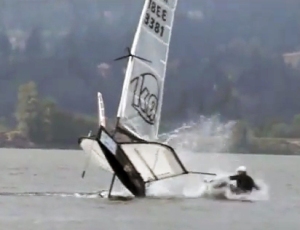Getting involved locally with the National Ocean Policy – originally published by the Bangor Daily News
As I gaze appreciatively out on the harbor this morning, I must remind myself that I sat down to write about some things that are happening in Washington that might forever change the character of life here in Friendship. The connections between the two places, at least in my thoughts today, are the budgetary battles in Washington over whether to restrict funding for the implementation of the National Ocean Policy and the important regional ocean planning efforts that should soon follow.
Why should a lobsterman from Maine care about such things? The obvious answers, of course, are that the ocean is our our workplace, our cultural heritage, and economically sustains us and our extended communities as it has for generations. Those of us who work on the ocean day to day live with the effects of small changes in climate and observe changes in habitat, all of which may be evident in our catch rates or how species progress through seasonal cycles. We are also solely dependent on a healthy resource that must be managed intelligently and effectively while remaining accessible to us.
We would be the ones to notice the first effects of ocean acidification caused by our carbon-based energy production and we are also the ones who might be displaced by the ocean renewable energy projects put in place to combat it. Ours are the communities that must decide whether to gear up for the economic growth of aquaculture or to try to retain the qualities and spatial freedom of “wild caught” fish.
The calls for ecosystem-based management, protection and restoration of important habitat areas as well as protection of wildlife and endangered species are all important goals that affect the sustainability and economics of our fisheries and our daily lives.
These ocean and coastal agendas, uses and causes that we care about certainly are going to require many tough decisions and negotiations, and I for one would like to have a direct voice in whatever process is used to decide and plan for them. Presently, it would seem, we have two choices. The status quo is that whatever proposal is being made goes to multiple government agencies that believe they have jurisdiction. From there they go on to public hearings, impact statements, the courts and all the rest with each proposal handled as a separate project and locale. This would all be carved out with little if any requirement for planning as to regional placement or sense of purpose.
Secondly we have the introduction of the National Ocean Policy with its regional ocean planning or Coastal and Marine Spatial Planning. The virtue of the National Ocean Policy is that it develops and facilitates the planning process, deals with many overlapping ocean uses and expedites the approval process of new uses being introduced. Hopefully this will be done in a holistic fashion with the best available science, economic and cultural data, along with local place-based knowledge, all while keeping in mind the economic and cultural importance of the commercial and recreational fishing industries.
The National Ocean Policy offers an avenue for thoughtful planning and is the best choice for those stakeholders looking to be involved in the process or at least having some voice in the discussion. We should include these stakeholders from the beginning by forming advisory bodies made up of ocean users including fishermen who are out on the waters every day. This would go a long way in increasing the level and quality of stakeholder participation.
With the importance of our oceans to New England, our nation and the world, and with all the problems we face and solutions to be found, we would hope that Congress would support these endeavors or at the very least not stand in the way.
Richard Nelson is a lobsterman from Friendship, ME.
How you can get involved:
Click here to go to the Ocean Conservancy’s website for information on how to let your congressman know that you want them to support the National Ocean Policy.











